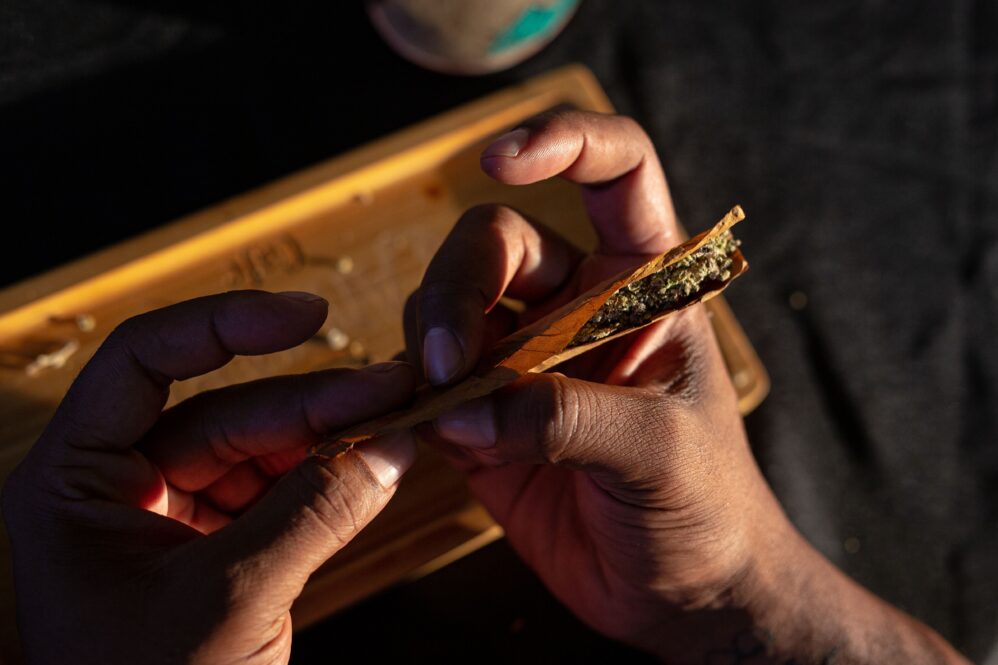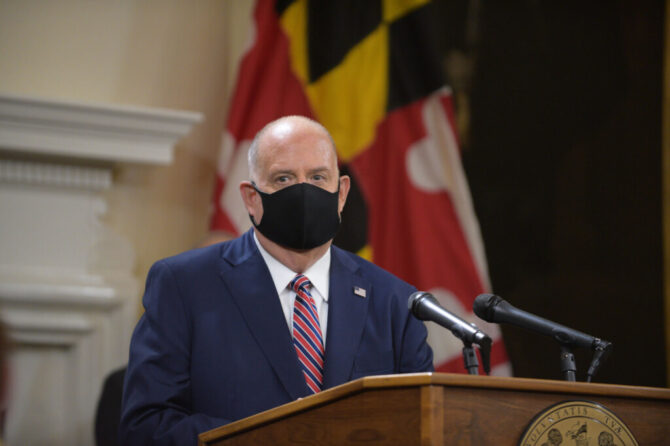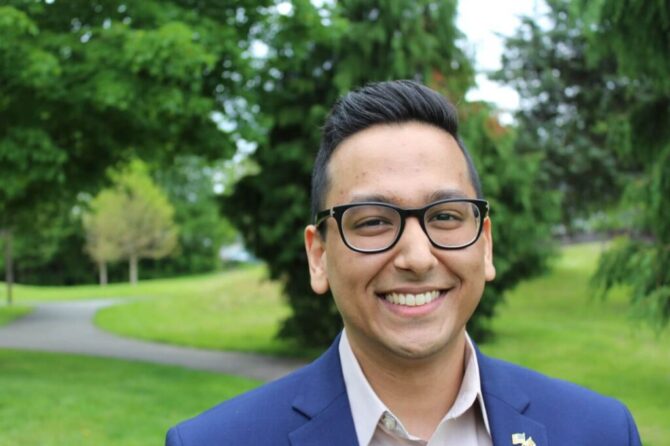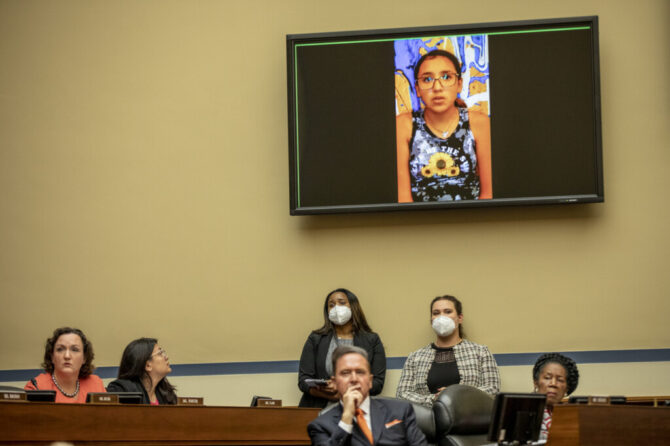WASHINGTON POST: There is no legal marketplace for recreational marijuana in Virginia, despite lawmakers voting to legalize adult possession of small amounts of the drug three years ago.
Three years after Virginia lawmakers voted to legalize possession of small amounts of marijuana for adults, the General Assembly is finally moving ahead with efforts to create a marketplace for the manufacture and sale of recreational cannabis.
There’s a long way to go. And even supporters don’t agree on an approach — or know whether Gov. Glenn Youngkin (R) will go along.On Friday, a Senate committee advanced a bill to get a regulated retail system up and running by Jan. 1, driven partly by concern that an illicit market is already flourishing as the state tries to get its act together.
“We already have a $3 billion adult-use cannabis market. It’s just being run by drug dealers who are selling untested, unlabeled, untaxed products,” said Greg Habeeb, a former Republican delegate lobbying on behalf of the Virginia Cannabis Association. “We are not creating the market. We are regulating the market.”
Though Democrats — and some Republicans — have expressed interest in passing some kind of legislation to rein in the marijuana marketplace, Youngkin has sent signals that he’s not on board, though he stopped short of promising a veto.
Asked Friday about the governor’s position, a spokesman referred to comments Youngkin made to reporters earlier this month when asked about marijuana legislation: “This is an area that I really don’t have any interest in,” Youngkin said, citing behavioral health and education as areas he thinks are more ripe for bipartisan agreement.
“There’s so many things that we can work on that I think we can get to the finish line and … I just don’t have a lot of interest in pressing forward with marijuana legislation,” he said. But Youngkin did not use the word “veto”; when asked on Friday about the governor’s omission of the word in his comments, Youngkin spokesman Christian Martinez did not respond.
Several powerful Democrats have said they want to push Youngkin to reach a deal on marijuana legislation as a prerequisite to backing his plan to help Monumental Sports & Entertainment build a $2 billion arena for the Wizards and Capitals at Potomac Yard in Alexandria.
The Senate’s cannabis subcommittee considered two bills for establishing a legal framework for sales, both pitched as ways to prevent big business from monopolizing the market. The panel opted for a bill sponsored by Sen. Aaron R. Rouse (D-Virginia Beach), which would allow the Virginia Cannabis Control Authority to begin issuing retail licenses July 1 but would not allow sales to begin until Jan. 1. The delay is intended to allow smaller operators time to get established.
“It’s about protecting Virginians and giving everyone an opportunity at a fair shot to be in this market,” Rouse said in an interview Friday.
The subcommittee weighed Rouse’s bill against a measure from Sen. Adam P. Ebbin (D-Alexandria), which would have allowed existing medical marijuana companies to start selling recreational marijuana July 1. In exchange for that right, each of those companies would be required to mentor or “incubate” six small businesses to help them get up and running.
The small businesses could begin operations Jan. 1, 2025. Other sellers could obtain licenses July 1, 2025, six months after the small businesses and a full year after the medical marijuana operators. The medical marijuana firms also would have to pay a $1 million license fee, with that money used for a grant fund for small marijuana businesses, which might otherwise struggle to get start-up capital.
“The approach of my bill allowed for more assistance to small businesses to try to get a foothold in the cannabis market,” Ebbin said.
Rouse contended that Ebbin’s bill would have given the medical cannabis industry a head start.
“The major difference was not allowing pharmaceutical companies to monopolize the cannabis industry,” Rouse said Friday. “I think pharmaceutical companies, they were really trying hard to be able to [go to] market six months ahead of time, before any of the small businesses have an opportunity to come to market. And that’s just unfair.”
On Friday, the Senate’s full Rehabilitation and Social Services Committee referred Rouse’s bill to the Courts of Justice Committee on a bipartisan 10-5 vote. All of those opposed were Republicans, but two Republicans who are new to the chamber, Emily M. Jordan (Isle of Wight) and Christie Craig (Chesapeake), voted with the Democrats to advance the bill. Senators expect colleagues on the courts committee to hash out criminal-justice-related details in the bill, which as proposed would increase the legal possession amount from one ounce to 2.5 ounces.
Assuming the bill advances after that, it is expected that it will go to the Senate Finance and Appropriations Committee to work out details related to taxation. As submitted, Rouse’s bill requires marijuana products to be subject to a 12 percent retail cannabis tax in lieu of a sales tax. The revenue would be evenly split between the state and the locality where it is sold.In the House of Delegates, Del. Paul E. Krizek (D-Fairfax) is carrying a version of the bill that Ebbin sponsored in the Senate; there is no House version of Rouse’s bill. The Krizek bill is likely to be heard by a subcommittee sometime this week, though there’s no firm schedule yet.
“It’s just early days yet on the House side,” Krizek said, adding that he has yet to survey the Democratic caucus to get a feel for any issues or the level of support. “There’s a long way to go.”Reminded of Youngkin’s comment that he isn’t interested in a marijuana marketplace bill, Krizek laughed. “I’m sure there’s a lot of things he doesn’t want to see,” he said. “But I hope he will read the bill.”
Krizek said he’s concerned that the version of the legislation advancing in the Senate omits the effort to create small-business incubators and help entrepreneurs from disadvantaged communities get a head start.
“I think that’s really important,” he said. “The bill’s really a public safety bill, but it has to rectify the historic wrongs” that have affected communities through decades of over-policing in the war on drugs, he said.
His version of the bill was influenced by social equity programs in Maryland’s laws establishing a legal market, Krizek said. It includes special provisions to license entrepreneurs from disadvantaged areas and directs tax proceeds for scholarships, job training and other programs in economically distressed neighborhoods.
In a news conference this month to tout the Krizek and Ebbin bills, Phillip Thompson — the president of Cannabis Equity Consultants and former head of the Loudoun County NAACP — acknowledged that efforts in other states to favor minorities when granting marijuana business licenses have been met with legal challenges. That’s why, he said, the proposed legislation avoids race and instead aims to set up “incubator” partnerships between disadvantaged entrepreneurs and companies already active in the medical cannabis market. “This bill … presents one of the best chances to get minority participation,” Thompson said.
The only other legislation in the House aimed at creating a retail marijuana marketplace is a resolution proposed by Del. Terry G. Kilgore (R-Scott), which would order the Virginia Cannabis Control Authority to study the creation of a retail marijuana market and make recommendations for each of the next two years.
The measure is not intended as an alternative to Krizek’s bill, Kilgore said, but rather a backstop.
“If all these other … retail bills fail, then [the study] is something we can go back to and at least set some guidelines to where people know what’s legal, what’s not legal, et cetera,” Kilgore said.
He said that law enforcement officials in his far-southwest corner of the state have pleaded for guidance as cannabis-related shops “pop up on every corner.” Asked whether he could support some version of the bill being offered by Democrats, Kilgore said he hasn’t had a chance to look at the legislation but plans to this week.
Could some Republicans get behind it? “Who knows?” Kilgore said. “And that’s not going to be known ’til March,” when the session comes to a close. “You know, with all this deal — with all these big issues coming up,” he said — then acknowledged what he seemed to be starting to say: with so much dealmaking going on behind the scenes. “Yes,” Kilgore said with a smile as he walked away. On the House side, at least one Republican — Del. Chris Obenshain (Blacksburg), a Montgomery County prosecutor — has told media in his district that he’s interested in passing some kind of marijuana market regulation.
“I favor clear regulations that include protections for public safety and more resources for mental health services,” Obenshain said last week in Cardinal News, which also quoted him as saying at a forum in October that, “personally, I really don’t have a problem if responsible adults want to use marijuana in their own home, and they aren’t harming anyone.”










